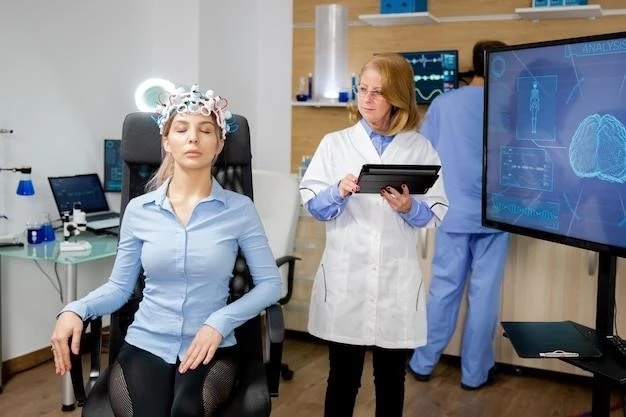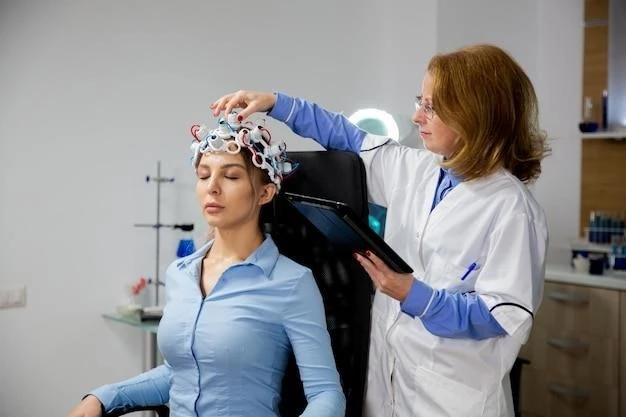Introduction
Understanding spinocerebellar ataxia (SCA), a group of progressive disorders affecting the cerebellum and causing coordination issues, is crucial for individuals and families. Learn more below.
Overview of Spinocerebellar Ataxia (SCA)
Spinocerebellar ataxia (SCA) is a group of inherited brain disorders that progressively affect coordination and movement due to degeneration of the cerebellum. Common types include SCA1٫ SCA2٫ SCA3٫ and SCA6٫ each characterized by specific genetic mutations and clinical features. Understanding the subtypes and their manifestations is crucial for diagnosis and management.
Types of Spinocerebellar Ataxia
Understanding the various types, such as SCA1, SCA2, SCA3, and SCA6, is essential for recognizing the specific genetic mutations and clinical presentations associated with each subtype. Explore more below.
SCA1, SCA2, SCA3, SCA6
Exploring the distinctions between SCA1, SCA2, SCA3, and SCA6 is fundamental as they exhibit unique genetic mutations and clinical patterns. Understanding the specific characteristics of each type is vital for accurate diagnosis and tailored treatment approaches. Let’s delve deeper into the details of these subtypes.
Cause and Symptoms
Understanding the genetic mutations and clinical manifestations of each SCA subtype is crucial for recognizing the underlying causes and symptoms. Learn more about how these factors contribute to the development of spinocerebellar ataxia.
Genetic Mutations and Clinical Manifestations
Understanding the genetic basis of SCA subtypes, such as SCA1, SCA2, SCA3, and SCA6, is vital in recognizing the intricate relationship between specific genetic mutations and the diverse clinical symptoms that manifest in individuals with these conditions. This knowledge aids healthcare professionals in diagnosing and treating patients effectively. Delve deeper into the genetic and clinical aspects of each subtype to gain a comprehensive understanding of how these factors contribute to the development and progression of spinocerebellar ataxia.
Diagnosis
Understanding the genetic basis and clinical symptoms is essential for the accurate diagnosis of spinocerebellar ataxia. Learn more about the diagnostic procedures and genetic testing involved.
Genetic testing plays a crucial role in diagnosing spinocerebellar ataxia by identifying specific genetic mutations associated with SCA subtypes like SCA1, SCA2, SCA3, and SCA6. Diagnostic procedures, including molecular testing and clinical evaluations, help healthcare providers accurately assess and manage individuals with these types of ataxia. Understanding the genetic basis through testing and employing diagnostic techniques enhances the early detection and comprehensive management of spinocerebellar ataxia.
Treatment Options
Exploring management strategies and therapies is crucial to alleviate symptoms and improve the quality of life for individuals with spinocerebellar ataxia. Discover effective approaches to enhance daily living.
Genetic Testing and Diagnostic Procedures
Genetic testing plays a vital role in identifying specific genetic mutations associated with SCA subtypes. Through diagnostic procedures like molecular testing and clinical evaluations, healthcare professionals can accurately assess and manage individuals with Spinocerebellar Ataxia. Understanding the genetic basis is essential for early detection and personalized treatment plans to improve the quality of life for those affected by this condition.

Prognosis and Complications
Understanding the disease progression and associated risks is essential for managing Spinocerebellar Ataxia effectively. Learn about the prognosis and potential complications that may arise.
Progression of the Disease and Associated Risks
Understanding the advancement of Spinocerebellar Ataxia and the potential risks involved is crucial for individuals and healthcare providers. Recognizing how the disease evolves over time and the complications it may bring helps in planning appropriate care and support for those affected. Explore more about the disease trajectory and associated risks to enhance patient management.
Lifestyle Recommendations
Adopting healthy habits and implementing supportive measures can enhance the well-being of individuals living with spinocerebellar ataxia. Explore lifestyle advice to promote overall health and quality of life.
Healthy Habits and Supportive Measures
Embracing healthy lifestyle choices and implementing supportive measures can significantly impact the well-being of individuals with Spinocerebellar Ataxia. From maintaining a balanced diet and regular exercise to seeking emotional support and engaging in physical therapy, adopting these practices can enhance quality of life and overall health outcomes for individuals living with this condition. Explore various strategies and habits that can help individuals manage their symptoms and improve their daily lives.

Research and Advancements
Stay informed about the latest studies and upcoming developments in the field of spinocerebellar ataxia. Discover current research initiatives and future directions that may lead to improved treatments and management strategies for individuals with this condition.
Current Studies and Future Directions
Ongoing research on spinocerebellar ataxias focuses on understanding the underlying genetic mechanisms, developing targeted therapies, and exploring new treatment modalities. Future directions aim to advance precision medicine approaches and improve outcomes for individuals with various types of SCAs. Stay informed about the latest findings and upcoming advancements in the field to enhance the management and quality of life for individuals affected by these conditions.
Coping Strategies
Discover effective coping mechanisms and emotional support to navigate the challenges of living with spinocerebellar ataxia. Prioritize mental well-being and find strategies to enhance resilience.
Emotional Support and Mental Well-being
Providing emotional support and prioritizing mental well-being is crucial for individuals with spinocerebellar ataxia. Coping strategies and mental health resources can help navigate the emotional challenges and maintain a positive outlook while managing the condition. Building a robust support system and focusing on mental wellness are key aspects of enhancing overall quality of life despite the challenges posed by the disease.
By incorporating coping mechanisms, lifestyle adjustments, and staying informed about research advancements, individuals can navigate the challenges of spinocerebellar ataxia with resilience and improved well-being. Seek support and embrace proactive strategies for managing this condition effectively.
Summary of Key Points on Spinocerebellar Ataxia (SCA)
Spinocerebellar ataxia (SCA) encompasses various genetic disorders affecting movement coordination; Common types include SCA1, SCA2, SCA3, and SCA6, each linked to specific genetic mutations and clinical manifestations. Research focuses on understanding disease mechanisms, while coping strategies and emotional support are essential for individuals living with SCA. Lifestyle adjustments, genetic testing, and advancements in diagnosis contribute to improved management of the condition.
